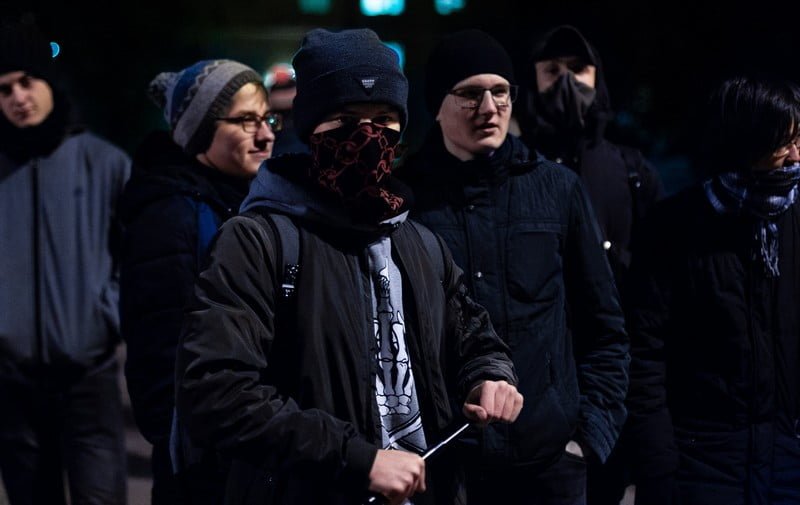Table of Contents
- Introduction
- The Foundation of Quinney’s Conflict Theory
- Gangs as a Product of Structural Inequalities
- Applying Quinney: Law, Power, and the Gang Label
- The Structural Dynamics of Gang Formation
- Crime and Capitalism: The Core Intersection
- Intersection with Race and Ethnicity
- Critiques and Counterarguments
- Policy Implications: Moving Beyond Punishment
- Broader Sociological Relevance
- Conclusion
Introduction
Richard Quinney’s Conflict Theory offers a compelling lens for examining the intricate relationship between social structures, power hierarchies, and phenomena labeled as criminal. Among the many forms of deviance that attract both sociological and public attention, gang activity stands out as a complex social issue. While mainstream discourse often portrays gangs as monolithic groups of lawbreakers, Quinney’s framework calls us to shift our attention to the institutional and structural dimensions that not only give rise to gangs but also maintain the conditions in which gang culture thrives.
When observed through Quinney’s perspective, gang behavior becomes more than just a random assortment of deviant acts; it emerges as a sociopolitical response. Gangs form in contexts shaped by systemic inequalities, marginalization, and the selective enforcement of laws that predominantly target disenfranchised communities. By exploring how Quinney’s Conflict Theory conceptualizes law, power, and the roots of deviance, we gain insight into why gangs persist and how they embody a collective reaction to structural oppression. This article seeks to investigate the nexus of Quinney’s theoretical propositions and gang formation, offering both a critical understanding of gangs and pointing toward policy avenues that address the structural inequities in which gang life is embedded.
The Foundation of Quinney’s Conflict Theory
Conflict Theory, broadly, argues that society is not a harmonious whole but a battleground where various groups compete for power, resources, and social status. Richard Quinney, building upon the works of Karl Marx and other conflict theorists, took these core premises and applied them specifically to criminology. In this view, crime arises from social and political hierarchies, where those in positions of power define what is deemed deviant or illegal. Consequently, people and groups lacking power find themselves disproportionately labeled as criminals.
Key Elements of Quinney’s Conflict Perspective
- Power and Law: Quinney proposed that the law serves as a tool of the ruling class. Those with power and influence craft legislation that reflects their economic interests and consolidates their social dominance.
- Selective Enforcement and Policing: While laws may be written in a way that appears neutral, they are often enforced in a manner that disproportionately impacts people in lower socioeconomic strata.
- Criminalization as Social Control: The criminal justice system functions as an instrument of control, enforcing the will of the dominant group. This creates patterns of labeling that systematically identify certain behaviors and populations as deviant.
- Criminogenic Structures: Social structures can be criminogenic—that is, they foster the conditions under which criminal behavior is more likely. Persistent poverty, disenfranchisement, and lack of opportunities are not random occurrences but the result of stratified social and economic systems.
Through these dimensions, Quinney’s Conflict Theory does not exclusively blame individuals for deviance. Instead, it argues that criminal actions must be understood in the broader context of inequality, exclusion, and power imbalance. This sets the stage for analyzing gangs, which often arise under conditions of socioeconomic deprivation and marginalization.
Gangs as a Product of Structural Inequalities
Gangs, especially in urban settings, frequently emerge from neighborhoods where poverty rates are high, public resources are scarce, and institutional support is minimal. In many cases, these neighborhoods are heavily policed, and residents feel continuously watched or harassed by law enforcement. From Quinney’s vantage point, gangs can be seen as a logical response to the social realities that characterize these marginalized areas.
Socioeconomic Constraints
For individuals residing in impoverished neighborhoods, mainstream avenues for success—such as stable employment or quality education—are often blocked. These systemic obstacles feed a sense of frustration and alienation. While traditional criminological approaches might attribute gang involvement to personal moral failings or subcultural values, Quinney’s Conflict Theory contends that these behaviors are deeply anchored in systemic injustice. Gangs may become a surrogate for the opportunities and protection that official institutions fail to provide.
Identity, Belonging, and Resistance
Beyond the material dimension, gangs offer intangible benefits such as identity, solidarity, and self-worth. Many young individuals in marginalized communities grow up amidst narratives that cast them as destined to fail or become entangled in the penal system. By joining a gang, they invert these narratives, seeking empowerment or self-assertion in a social space where mainstream validation is scarce. From a conflict perspective, such collective identity-building can be interpreted as a form of resistance. The gang’s customs, symbols, and codes can challenge—either openly or implicitly—the authority of a dominant culture that has systematically excluded them.
Applying Quinney: Law, Power, and the Gang Label
Quinney’s perspective sheds light on how legal definitions of crime and deviance contribute to the perpetuation of gang stereotypes. The label of “gang member” carries significant legal and societal repercussions. Once imposed, it shapes how law enforcement, courts, and the public interact with the labeled individual.
Selective Law Enforcement
Gangs are often hyper-visible to police forces, which spend considerable resources targeting specific neighborhoods. This selective enforcement means that individuals in these areas, whether actual gang members or simply residents, are more likely to be stopped, searched, or arrested compared to those living in higher-income districts. Although laws may ostensibly be impartial, the enforcement practices reveal structural biases that coincide with economic and racial divides.
Amplification of Deviance
Labeling individuals as gang members amplifies deviance through a self-fulfilling prophecy. Quinney’s framework explains that once society designates a category of people as deviant, the institutions of social control focus on them, increasing the likelihood of surveillance and incarceration. This heightened monitoring, ironically, can solidify one’s gang identity. Social bonds outside the gang may dissolve due to stigma, leaving the individual more invested in the gang for companionship, protection, and a sense of belonging.
Role of Fear and Moral Panics
Societal narratives around gangs frequently rely on sensational media coverage. These often paint gangs as threats to the fabric of society, fueling moral panics that justify stringent law enforcement policies. According to Quinney, the media and political discourse serve the interests of the ruling class by demonizing marginalized groups, thereby securing public support for tough-on-crime legislation. In reality, these laws disproportionately affect neighborhoods already grappling with various forms of disadvantage, effectively maintaining cycles of poverty and exclusion.
The Structural Dynamics of Gang Formation
Get the full article AD FREE. Join now for full access to all premium articles.
View Plans & Subscribe Already a member? Log in.





